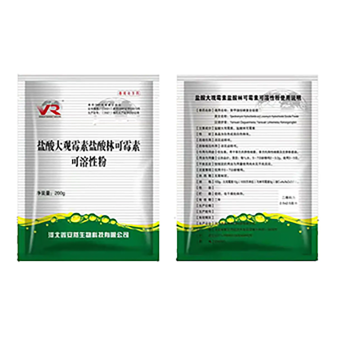- Afrikaans
- Albanian
- Amharic
- Arabic
- Armenian
- Azerbaijani
- Basque
- Belarusian
- Bengali
- Bosnian
- Bulgarian
- Catalan
- Cebuano
- Corsican
- Croatian
- Czech
- Danish
- Dutch
- English
- Esperanto
- Estonian
- Finnish
- French
- Frisian
- Galician
- Georgian
- German
- Greek
- Gujarati
- Haitian Creole
- hausa
- hawaiian
- Hebrew
- Hindi
- Miao
- Hungarian
- Icelandic
- igbo
- Indonesian
- irish
- Italian
- Japanese
- Javanese
- Kannada
- kazakh
- Khmer
- Rwandese
- Korean
- Kurdish
- Kyrgyz
- Lao
- Latin
- Latvian
- Lithuanian
- Luxembourgish
- Macedonian
- Malgashi
- Malay
- Malayalam
- Maltese
- Maori
- Marathi
- Mongolian
- Myanmar
- Nepali
- Norwegian
- Norwegian
- Occitan
- Pashto
- Persian
- Polish
- Portuguese
- Punjabi
- Romanian
- Russian
- Samoan
- Scottish Gaelic
- Serbian
- Sesotho
- Shona
- Sindhi
- Sinhala
- Slovak
- Slovenian
- Somali
- Spanish
- Sundanese
- Swahili
- Swedish
- Tagalog
- Tajik
- Tamil
- Tatar
- Telugu
- Thai
- Turkish
- Turkmen
- Ukrainian
- Urdu
- Uighur
- Uzbek
- Vietnamese
- Welsh
- Bantu
- Yiddish
- Yoruba
- Zulu
Dec . 10, 2024 23:53 Back to list
Doxycycline Hyclate for Canine Health Benefits and Treatment Options
Doxycycline Hyclate in Canine Medicine An Overview
Doxycycline hyclate is a broad-spectrum antibiotic that belongs to the tetracycline class of drugs. It is widely used in veterinary medicine, particularly in canine health management, to treat various infections caused by susceptible bacteria. This article explores the uses, benefits, administration, and potential side effects of doxycycline hyclate in dogs.
Uses of Doxycycline Hyclate in Dogs
Doxycycline is highly effective against a range of bacterial infections, making it an essential component in treating several canine conditions. Common uses include
1. Respiratory Infections Doxycycline is often prescribed for dogs suffering from bacterial pneumonia and other respiratory infections. Its efficacy against pathogens like Bordetella bronchiseptica, which causes kennel cough, makes it a go-to treatment option.
2. Urinary Tract Infections (UTIs) The antibiotic is useful in treating UTIs caused by various bacteria. It helps to clear the infection and alleviate symptoms such as frequent urination and discomfort.
3. Lyme Disease Doxycycline is considered one of the primary treatments for Lyme disease, a tick-borne illness caused by the bacterium Borrelia burgdorferi. Early diagnosis and treatment are vital to prevent long-term health issues in dogs.
4. Periodontal Disease Veterinary dentists may use doxycycline as part of a treatment plan for periodontal disease, especially in cases where bacterial infection is contributing to gum disease.
5. Other Infections Doxycycline is also effective against other bacterial infections, such as those related to skin, soft tissue, and certain systemic conditions.
Benefits of Doxycycline Hyclate
Doxycycline hyclate presents several advantages for canine patients
- Broad-Spectrum Activity Its ability to target a wide range of bacteria makes it versatile for treating different infections.
- Anti-Inflammatory Effects In addition to its antibacterial properties, doxycycline also exhibits anti-inflammatory effects, which can aid in managing symptoms associated with infection.
doxycycline hyclate canine

- Oral Administration Doxycycline hyclate is available in oral forms, which simplifies administration for pet owners.
- Long Half-Life The drug has a longer half-life compared to some other antibiotics, allowing for less frequent dosing while still maintaining effective drug levels in the body.
Administration Guidelines
Doxycycline hyclate is typically administered in tablet or liquid form. The veterinarian will determine the appropriate dosage based on the individual dog’s weight, age, health status, and the specific type of infection being treated. It is important for owners to follow the prescribed dosage and not to discontinue the medication prematurely, as this can lead to antibiotic resistance and suboptimal treatment outcomes.
To enhance absorption, doxycycline should be given with food; however, certain formulations may be administered on an empty stomach based on the veterinarian’s advice. Water should always be provided, and pet owners should ensure that their dogs have access to fresh water while undergoing treatment.
Potential Side Effects
While doxycycline is generally well-tolerated, some dogs may experience side effects. Common adverse reactions include
- Gastrointestinal Upset Dogs may experience nausea, vomiting, or diarrhea. If these symptoms persist or worsen, the owner should contact their veterinarian.
- Esophageal Irritation Doxycycline can cause irritation to the esophagus, especially if the tablet is not swallowed properly. To mitigate this risk, it is essential to provide ample water after administering the medication.
- Photosensitivity Some dogs may develop increased sensitivity to sunlight, leading to skin irritation or burns. It’s advisable to keep affected dogs out of direct sunlight if this occurs.
Conclusion
Doxycycline hyclate is an invaluable tool in the arsenal of canine medicine. Its broad-spectrum activity and anti-inflammatory properties make it a preferred choice for treating various bacterial infections in dogs. However, like any medication, it is crucial to administer it responsibly, under the guidance of a veterinarian. With careful use and monitoring, doxycycline hyclate can significantly improve the health and quality of life for canine patients suffering from bacterial infections.
-
Guide to Oxytetracycline Injection
NewsMar.27,2025
-
Guide to Colistin Sulphate
NewsMar.27,2025
-
Gentamicin Sulfate: Uses, Price, And Key Information
NewsMar.27,2025
-
Enrofloxacin Injection: Uses, Price, And Supplier Information
NewsMar.27,2025
-
Dexamethasone Sodium Phosphate Injection: Uses, Price, And Key Information
NewsMar.27,2025
-
Albendazole Tablet: Uses, Dosage, Cost, And Key Information
NewsMar.27,2025













